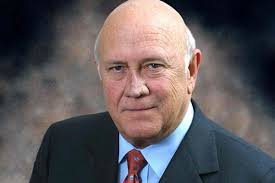As the sun paints the South African sky on March 24, the whispers of the past echo in the air. Like many threads woven into the nation’s vibrant tapestry, this date holds stories waiting to be unearthed. We embark on a journey of exploration, delving into the triumphs, tragedies, and turning points that mark March 24 in South Africa’s history.

1995: De Klerk calls for stringent safety measures
President F.W. de Klerk announces the calling up of military reservists to curb political violence, which will top the agenda of the forthcoming multiparty political talks. He further asserted that he personally supported the reinstatement of the death penalty for murder and other serious crimes and would permit a free vote in parliament on the issue. These measures were aimed at curbing the rising number of attacks on white civilians, with the most recent one being an ambush on a motorist at Eikenhof, near Johannesburg, in which his wife, son, and a friend of his son were killed.
1993: President FW de Klerk tells Parliament that South Africa had constructed six nuclear fission devices
In 1993, South African President F.W. de Klerk confirmed that the Apartheid regime had constructed six nuclear devices as a deterrent against the perceived Soviet threat. However, the regime dismantled the program during negotiations with Liberation movements.
1991: Twelve people are killed in Daveyton
Twelve people, including a police officer and two children, were killed in the eastern Rand township of Daveyton, near Benoni. The incident sparked a wave of criticism, which led the government to launch a judicial investigation. The African National Congress (ANC) claimed that police shot at its supporters while defending themselves from attacks by Inkatha Freedom Party (IFP) supporters, while the police claimed that they had to open fire when the crowd attacked them.
1953: Queen Mary dies
Queen Mary, wife of George V, died on March 24, 1953, at the age of 86. She was buried next to her husband at St George’s Chapel, Windsor.
1882: World TB Day raises awareness of the global epidemic of tuberculosis
World Tuberculosis Day is observed on 24th March every year to raise awareness about the disease. In 2012, the theme was about how Europe and ACP countries can strengthen each other in the fight against tuberculosis. In South Africa, the incidence of TB has tripled in recent years, partly due to high HIV infection rates.
1855: South African author and feminist Olive Schreiner is born
Olive Schreiner, a South African author, was born to Gottlob and Rebecca Schreiner in the Eastern Cape. She is famous for her book “The Story of an African Farm”. The Eastern Cape Department of Tourism has converted her childhood home into a museum in her honor. Schreiner passed away in Wynberg, Cape Town in 1920.
1593: The Santo Alberto is wrecked
The Santo Alberto, a Portuguese cargo ship, wrecked off the coast of Pondoland. Admirable leadership of the captain saved most of the people on board. Survivors established contact with the Bantu in the area. Shipping disasters continued throughout the 17th century and contributed to the collapse of the Portuguese empire.



